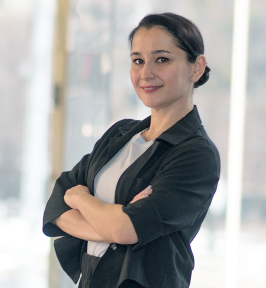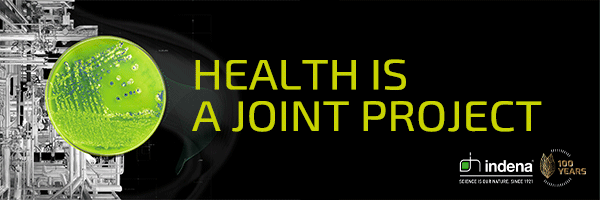Pharmaceuticals
CPHI Frankfurt welcomes Ukrainian Pharma 7th October 2022
Huge European sales pivot underway as manufacturers used Covid supply experiences to adapt to war time production
 Despite the war in the Ukraine, pharma remains an integral industry supporting its economy and producing vital medical supplies within the country. Yet rather than waiting for the cessation of hostilities the industry here is proactively perusing new partnerships and sales. In fact, four of the country’s leading pharmaceutical companies will be exhibiting at CPHI Frankfurt in November. Yuria-Pharma, Darnitsa, Indar and Farmak are all looking to strengthen current partnerships, and in particular to build new ties with potential western and worldwide partners. This includes developing new export markets for their products but also researching the possibilities to expand production in sites outside of the Ukraine. For example, some companies already using manufacturing facilities in Poland. Ahead of special address to global pharma during CPHI’s Connect to Pharma, Chemicals Knowledge Hub spoke with a number of speakers from session: ‘The Ukrainian Pharmaceutical Industry: Actual Situation, Challenges and Opportunities’.
Despite the war in the Ukraine, pharma remains an integral industry supporting its economy and producing vital medical supplies within the country. Yet rather than waiting for the cessation of hostilities the industry here is proactively perusing new partnerships and sales. In fact, four of the country’s leading pharmaceutical companies will be exhibiting at CPHI Frankfurt in November. Yuria-Pharma, Darnitsa, Indar and Farmak are all looking to strengthen current partnerships, and in particular to build new ties with potential western and worldwide partners. This includes developing new export markets for their products but also researching the possibilities to expand production in sites outside of the Ukraine. For example, some companies already using manufacturing facilities in Poland. Ahead of special address to global pharma during CPHI’s Connect to Pharma, Chemicals Knowledge Hub spoke with a number of speakers from session: ‘The Ukrainian Pharmaceutical Industry: Actual Situation, Challenges and Opportunities’.
 According to Svitlana Havrylenko, the editor of Ukrainian pharma magazine Pharmaceutical Industry Review, “The experience our pharma industry gained during the early stages of the Covid pandemic has served us well in developing our response to the Russia invasion of our eastern territories. It taught us how to adapt to rapidly changing conditions and build extra resilience into our supply chains. It also showed that co-operation between companies was the key to success. That spirit is still very much alive today as we seek to maintain production to the very highest GMP standards. What we have also seen particularly from neighboring regions in Europe is partnerships helping with supply chain and looking to our industry for future demand.”
According to Svitlana Havrylenko, the editor of Ukrainian pharma magazine Pharmaceutical Industry Review, “The experience our pharma industry gained during the early stages of the Covid pandemic has served us well in developing our response to the Russia invasion of our eastern territories. It taught us how to adapt to rapidly changing conditions and build extra resilience into our supply chains. It also showed that co-operation between companies was the key to success. That spirit is still very much alive today as we seek to maintain production to the very highest GMP standards. What we have also seen particularly from neighboring regions in Europe is partnerships helping with supply chain and looking to our industry for future demand.”
In fact, both the international community and government in Ukraine have identified the growth of it pharma industry as a key part of its resilience today and growth for tomorrow. For example, the Ukraine is embarking on the implementation of a verification system for medicinal products with 2D coding. This will be extremely important for ensuring the safety and quality of medicines in Ukraine. In addition, the introduction of such a digital system will reduce the need for paper documents, and increase the accuracy of verification and reporting, ensure visibility of production volume, location and destination practices throughout the country. The new ‘SAFEMed’ (Safe and Affordable Medicines for Ukrainians) initiative is being funded by the United States Agency for International Development (USAID) and has to be live by 2028.
To implement SAFEMed, the Ukraine will draw on the experience of implementing national systems of other countries, as well as their connection to a single system within the European centralized data warehouse. All European countries use a unified approach to the technical component of the generation of unique identification codes for packages of medicines and, international standards ISO , as well as a two-dimensional bar code in the format DataMatrix GS1.
Ukraine is of course also now a serious candidate for EU membership, so it is extremely important for the Ukraine to ensure the future integrity and reliability of its entire system, as well as compliance with the basic European standards and requirements established in the User Requirements Specification (ICS) of the European Verification System for Medicinal Products.
Ukraine pharma believes that its central geographical location means that it is ideally placed to supply countries across Europe, Asia and the rest of the world. To this end, it’s Government has recently included the pharmaceutical industry as one of its priority sectors of the Ukrainian economy.
This inclusion in the list of priority sectors of the economy will help attract state investment support for production and increase the number of jobs. It will ensure there is a continuation of provision for the health care system with medicines and medical devices, guaranteeing their uninterrupted production and, consequently, supply to the end user.
Significantly for attendees at CPHI Frankfurt, Ukraine’s pharma industry has also been making moves in the last few years to become a regional innovation hub for new developments. So although the country produces a lot of generics, sourcing its APIs in Eastern Europe, China and India, it is working also on NCEs and is looking to expand its capacity for innovation.
“Perhaps this biggest development and a positive one, is that our sales markets for exports have quickly switched away from CIS regions and our manufacturers are building new networks across eastern Europe and the Middle East – with comparable manufacturing standards and highly competitive prices what we have seen is a resurgences of interest in our country. So in the next few years we expect really positive developments, and we look forward to meeting global pharma at CPHI Frankfurt,” added Havrylenko.
 To learn more about ‘Ukrianian Pharma : Challenges and Opportunities Ahead’ and to attend the online session on ‘Resilience in the time of war’ by Volodymyr Kostiuk, CEO, Farmak JSC – please log in to ‘Connect to Frankfurt’ (available on deman after September 28th) – a new digital platform to begin your journey to CPHI Frankfurt.
To learn more about ‘Ukrianian Pharma : Challenges and Opportunities Ahead’ and to attend the online session on ‘Resilience in the time of war’ by Volodymyr Kostiuk, CEO, Farmak JSC – please log in to ‘Connect to Frankfurt’ (available on deman after September 28th) – a new digital platform to begin your journey to CPHI Frankfurt.
Connect to Frankfurt is specifically designed for CPHI attendees to get the most out of their CPHI Frankfurt experience – even before they attend – it presents more than 30 on-demand webinars, and offers a head start on networking, meetings, and understanding the very latest in pharma industry developments. The online platform is accessible to anyone registered for CPHI Frankfurt (November 1-3, 2022) – the world largest pharma event – and will remain open post event until 18th November.


